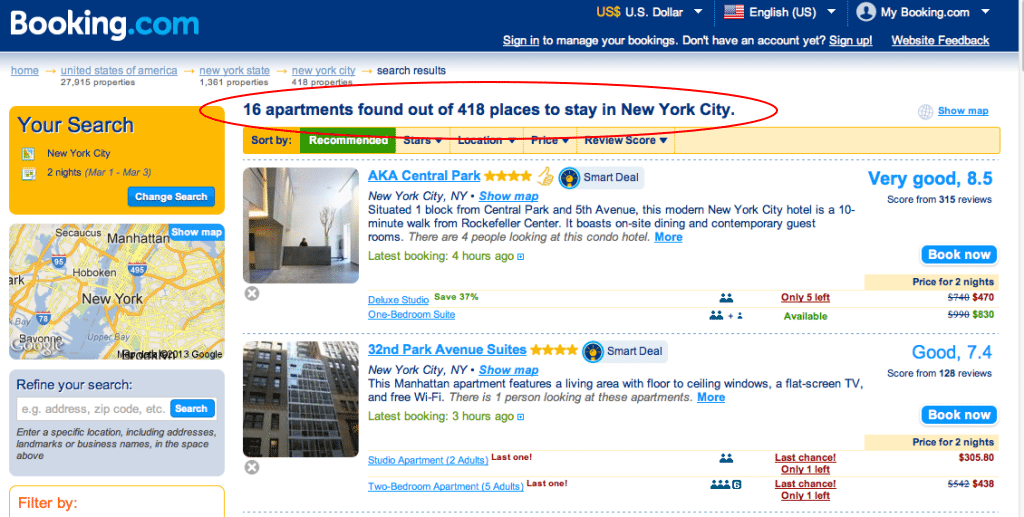How Booking.com and its ad campaign may change your lodging options

Skift Take
Where Booking.com leads, other online travel agencies tend to follow. Don't be surprised if you start seeing more apartment hotels and hostels appearing on Expedia sometime soon.
Priceline's Booking.com has mostly held back on TV advertising in the U.S. until right friggin' -- or as the commercial says -- "until right booking now."
Booking.com, with its industry-largest collection of more than 275,000 traditional hotels, apartment hotels and hostels in its portfolio, is in the "early days" of its first offline marketing campaign in the U.S., and it will be spread out over several quarters and include TV and cinema, Priceline CEO Jeffery Boyd said today.
Booking.com has offered hotels in the U.S. for European travelers for several years, and last month began the advertising campaign in the U.S.
The advertising onslaught -- with the dollar size of the campaign not revealed -- coincides with slight changes in B
